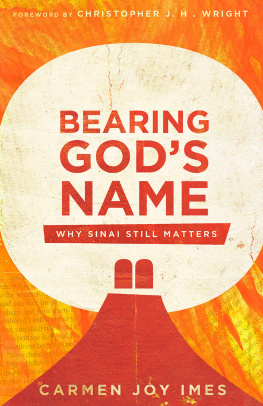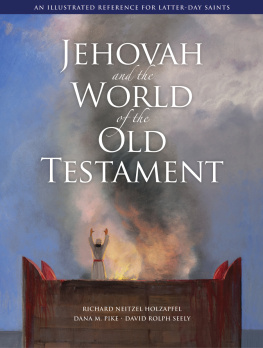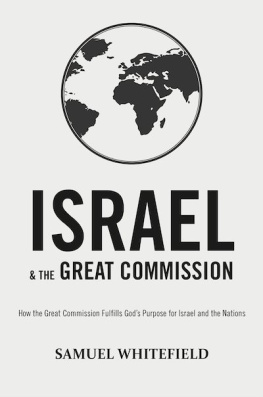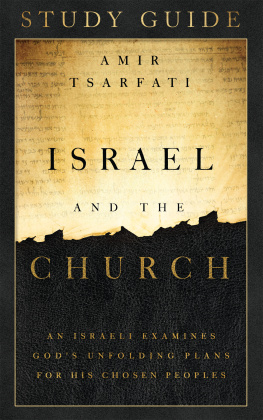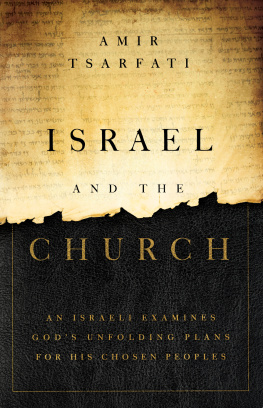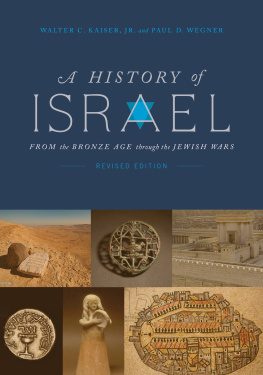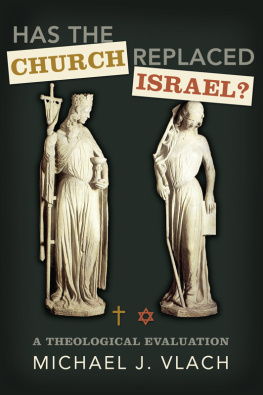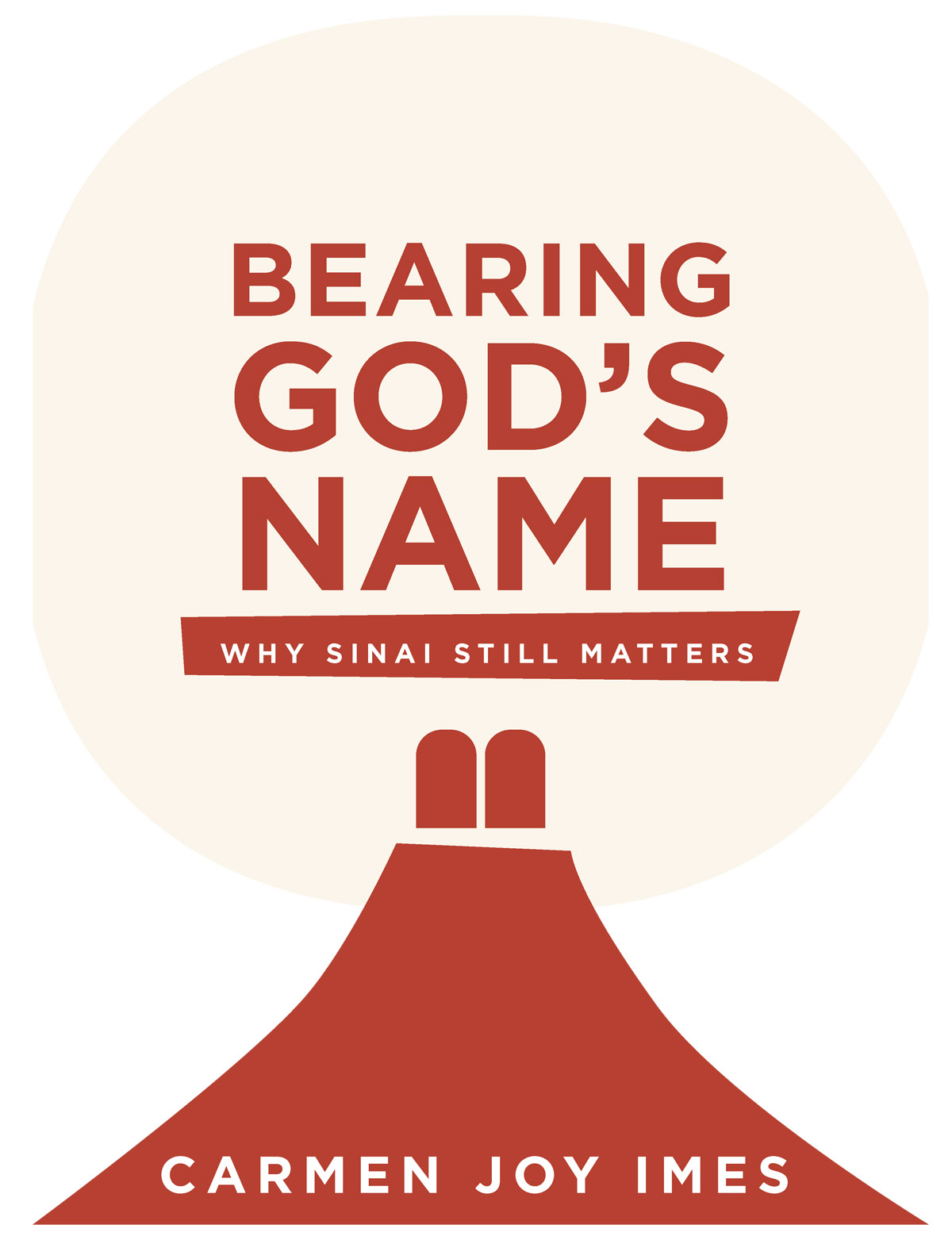Sommaire
Pagination de l'dition papier
Guide
FOREWORD BY CHRISTOPHER J. H. WRIGHT
InterVarsity Press
P.O. Box 1400, Downers Grove, IL 60515-1426
ivpress.com
2019 by Carmen Joy Imes
All rights reserved. No part of this book may be reproduced in any form without written
permission from InterVarsity Press.
InterVarsity Press is the book-publishing division of InterVarsity Christian Fellowship/USA, a
movement of students and faculty active on campus at hundreds of universities, colleges, and schools
of nursing in the United States of America, and a member movement of the International Fellowship
of Evangelical Students. For information about local and regional activities, visit intervarsity.org.
All Scripture quotations, unless otherwise indicated, are taken from The Holy Bible, New International Version, NIV. Copyright 1973, 1978, 1984, 2011 by Biblica, Inc. Used by permission of Zondervan.
All rights reserved worldwide. www.zondervan.com. The NIV and New International Version
are trademarks registered in the United States Patent and Trademark Office by Biblica, Inc.
While any stories in this book are true, some names and identifying information may have been changed
to protect the privacy of individuals.
Prayer to Any God translation copyright Benjamin R. Foster, Before the Muses, CDL Press.
Used courtesy of Benjamin R. Foster.
Cover design and image composite: David Fassett
Interior design: Jeanna Wiggins
Cover images: abstract watercolor: Pobytov / DigitalVision Vectors / Getty Images
poster paper background: spxChrome / iStock _Getty Images
sand: svedoliver / iStock / Getty Images Plus
cracked wall: man_kukuku / iStock / Getty Images Plus
grunge white paper: duncan1980 / iStock / Getty Images
ISBN 978-0-8308-4836-2 (digital)
ISBN 978-0-8308-5269-7 (print)
This digital document has been produced by Nord Compo.
For my parents,
Dan and Verna Camfferman,
and for Danny,
my partner for life,
and for our children,
Eliana, Emma, and Easton,
who have known for a long time
what it means to bear Gods name.
FOREWORD
Christopher J. H. Wright
And you call yourself a Christian! That was about the worst thing we feared hearing as young Christians in my Northern Ireland childhood. If you were caught cheating on a test, or saying a bad word in your anger, or getting into a fight on the playground, or telling a dirty joke, or just showing off in front of the girls... whatever it was, the most stinging rebuke from other kids (or worst of all from a teacher) would be, And you call yourself a Christian! From another kid, that would mean, See! Youre no better than the rest of us. Holier-than-thou. Hypocrite! From a teacher it was more sobering: Thats not the sort of behavior we expect from you of all people, Christopher. Either way it was a pretty excruciating humiliation. There you were with your little Christian lapel badge for the Scripture Union or whatever, advertising that you were a Christian. But youd let the team down again, let Jesus down again.
In our late teenage years the terminology changed a bit, but the inference was the same. There were many things that a real Christian simply didnt do, places you didnt go, music you shouldnt listen to, clothes you shouldnt wear, and so on, because if anybody saw or heard you, it would spoil your testimony. How could you bear witness to being a follower of Jesus, if you were just as worldly as all the other young folks?
Now of course I recognize that an unwholesome dose of legalism lurked in that kind of Christian culture, and sadly there were those who so reacted against it that they rejected the very faith it was trying to protect. But there was a genuine biblical truth underneath those assumptions and restrictions, namely this: how those who claim to be the people of God behave is an essential and inseparable component in the credibility (or otherwise) of what they say they believe about the God whose name they bear. If you call yourself a Christian, youd better behave like one (or at least bear some resemblance to how people think Christians should behave). Let every one that nameth the name of Christ depart from iniquity (2 Timothy 2:19 KJV, emphasis mine), was a memory verse impressed on us and rightly so.
Learning the Ten Commandments by heart, word-perfect from the KJV, was also part of my upbringing. So we chorused, Thou shalt not take the name of the LORD thy God in vain; for the LORD will not hold him guiltless that taketh his name in vain. And of course, we knew what taking Gods name in vain meant. It was using the name of God, or Jesus, or Christ as a swear word or in any kind of exclamation. So we just didnt! And we tutted and frowned very disapprovingly at anybody who did.
Well, again, I dont regret or reject those childhood admonitions to watch our language. But having now read this book by Carmen Joy Imes, I do wonder what difference it would have made if those renowned KJV translators had been more literal and rendered the verb in its natural meaning: You shall not bear the name of the LORD thy God in vain. It might, of course, have simply increased the agony of those And you call yourself a Christian moments. But if Imes is right, it would have been much closer to the strong ethical thrust of the commandment than merely verbal abuse or misuse of Gods name (not that that is a trivial matter by any means).
And I have to say that I am convinced that Carmen Imes is right. Her case in this book (and argued in great exegetical detail in her published dissertation, Bearing YHWHs Name at Sinai: A Reexamination of the Name Command of the Decalogue), is that bearing the name of Yahweh is comparable in meaning to the High Priest bearing the names of the tribes of Israel on his breastplate and bearing the name of Yahweh on his forehead. He representsin both directionsthose whose name he bears. Similarly, those who bore the name of Yahweh, like those who bear the name of Christ, represented that name before the watching world. Israel was called to live in the midst of the nations as the people who bore the name of Yahweh and made Yahweh visible in the world by walking in his ways and reflecting his character. To bear the name of the Lord was not merely an inestimable privilege and blessing but a challenging ethical and missional responsibility. This makes eminent sense to me. And its New Testament parallels are obvious.
A little more of my own story may explain why I resonate so enthusiastically with the message of this book. My parents were missionaries in Brazil before I was born, so I grew up with a houseful of missionary artifacts and a headful of missionary stories. (And you a missionarys son! was an even more stinging rebuke for the mildest bad behavior, since it felt like bringing disgrace on my own father, let alone the Lord Jesus.)
I studied theology in Cambridge University. But in my undergraduate years there seemed no connection between theology and my missionary interests. I then went on to do doctoral research in the field of Old Testament ethics. That was a rich field of exploration in which I became ever more convinced that much of the weakness of the modern church is owing to its neglect of the profound ethical message and principles that God has woven so pervasively into the life and scriptures of Israeland that filter through into so much of the ethical teaching of Jesus and the apostles in the New Testament. But again, this did not particularly connect with mission in my thinking.

